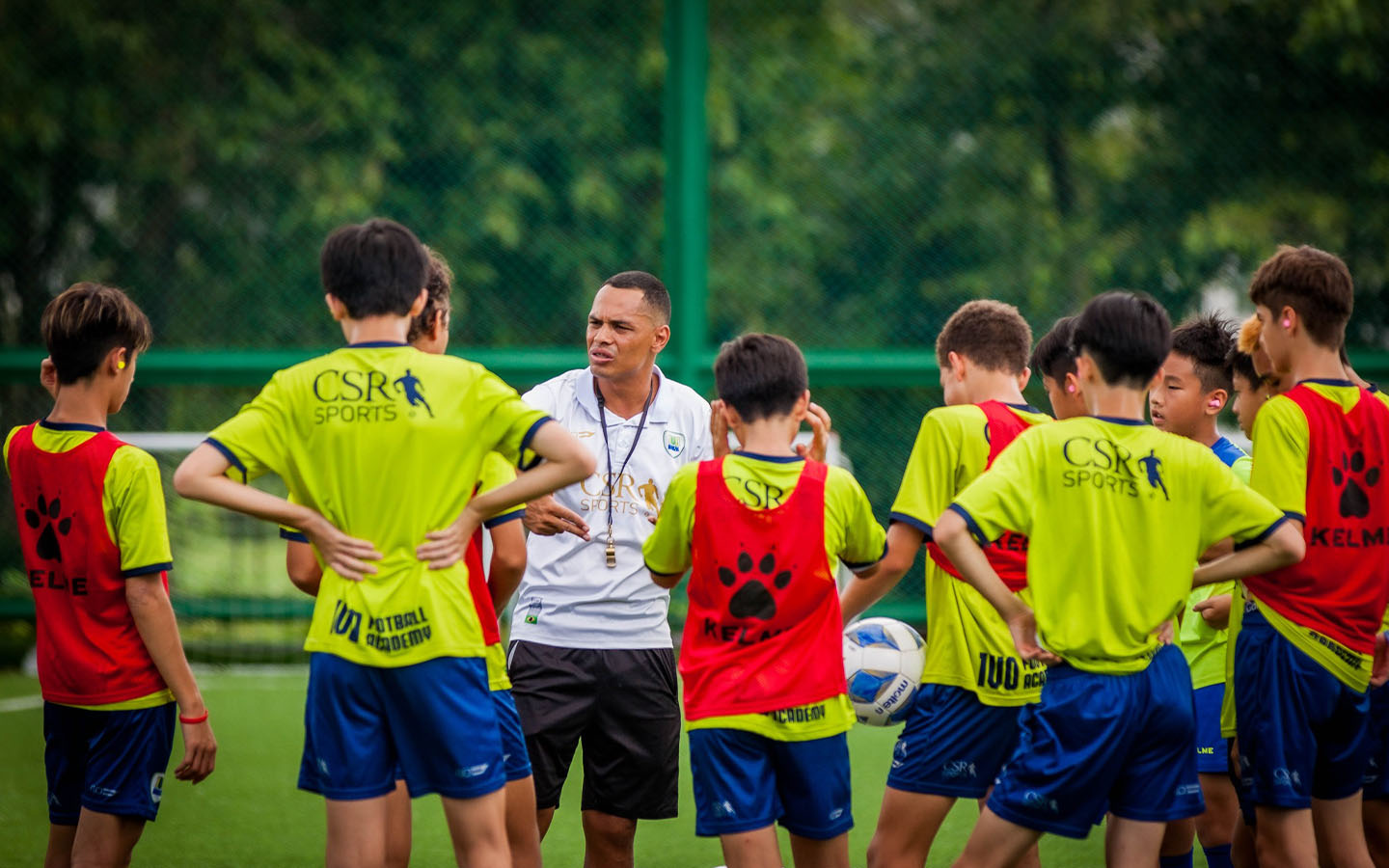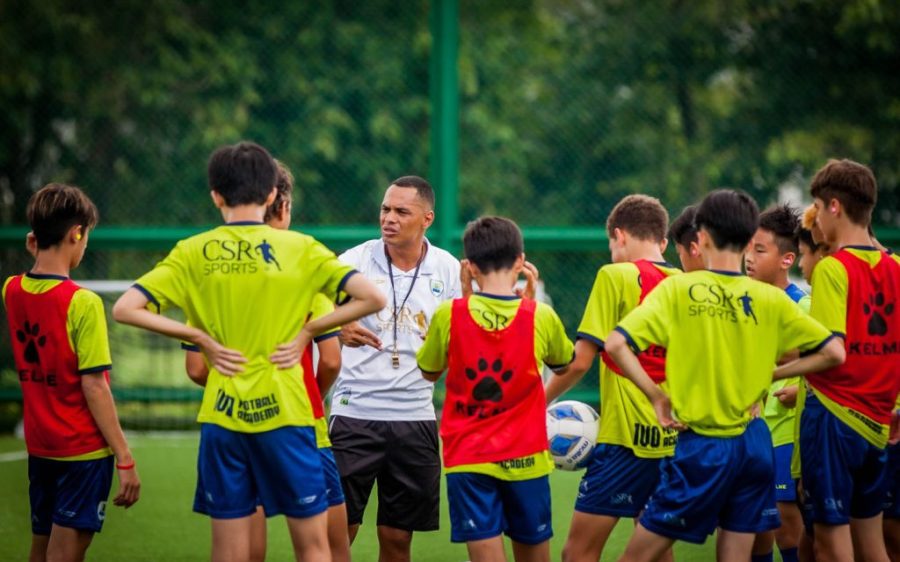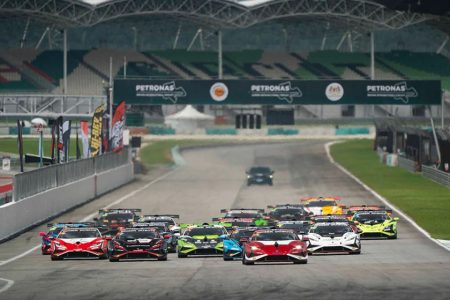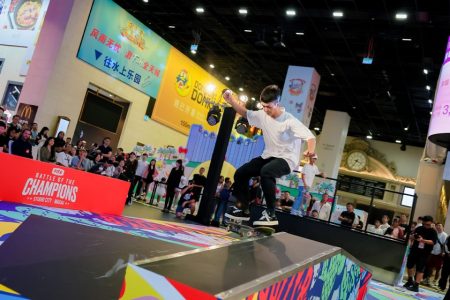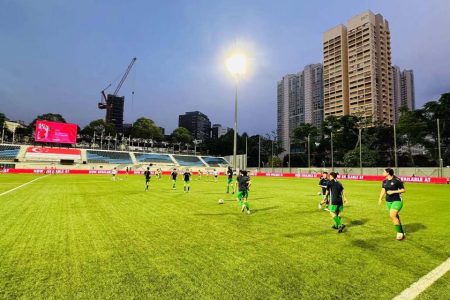Everybody knows the parlous state of Macao football. The territory is at 187 in the FIFA global ranking system – below the Cook Islands (185), which has a population just 2.5 percent of Macao’s, and far below the tiny Caribbean island of Montserrat (176), which is home to a mere 4,900 people.
Macao’s 2026 FIFA World Cup campaign was a nonstarter. It has won only one international match since 1998 (defeating Sri Lanka in 2019). The women’s team has the dubious distinction of suffering one of the worst regional defeats (16-0 against Chinese Taipei). Meanwhile the local league “could be more competitive” in the understated assessment of Lázaro Oliveira, the Macao team’s head coach. The league also suffers problems with talent retention and a shortage of facilities.
Enter William Gomes. The Brazilian owner of the Ivo10 Academy – a soccer training centre that has branches in both Macao and the Brazilian state of Rio Grande do Sul – is on a mission to lift the standards of the local game. “The goal is to help Macao football,” says 37-year-old Gomes. “I believe in four or five years, we will have two or three local players in Hong Kong, Brazil or in Europe.”
[See more: What’s next for football in Macao?]
That’s ambitious for a territory that struggles to simply get players into the Hong Kong league – nevermind further afield. “Macao’s football standards are lower compared to Hong Kong,” according to Benfica Macau centre forward Leong Ka Hang, who played on the other side of the estuary from 2015 to 2021. Speaking to Macao News in an interview last year, he said “When I went there to play, everyone looked down on me.”
Gomes, a father of three, is undeterred. “In Macao, we already have the basics because the training centres are doing very well,” he tells Macao News. “But we don’t have the second step – the future. To have a future, we need open minds and to make a lot of changes.”
How was the Ivo10 football academy set up?
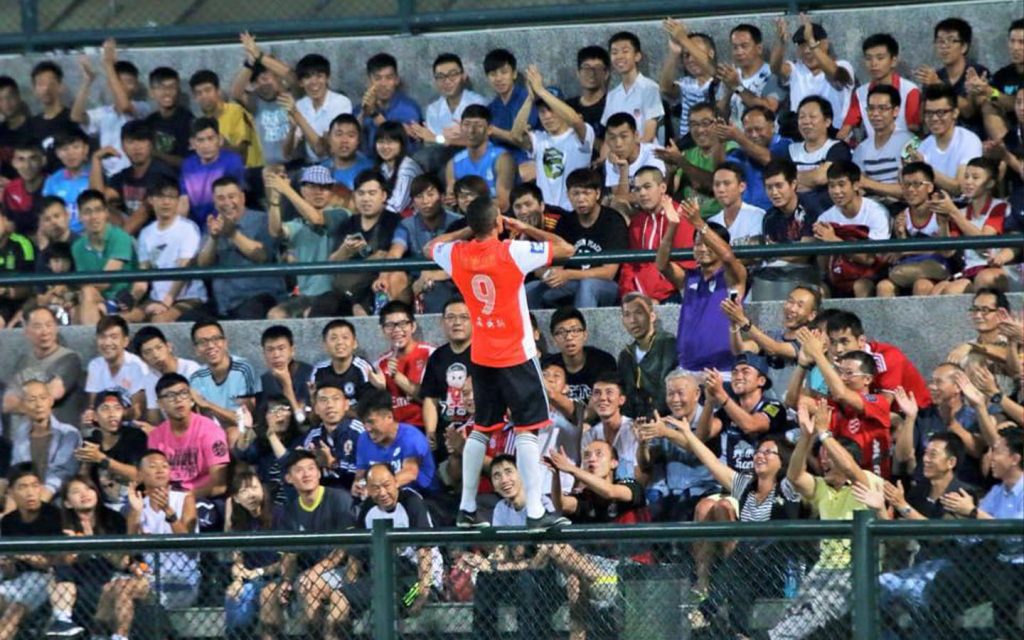
You might say that Gomes’ mission is divinely inspired. A devout Christian, he arrived in Macao in 2010 and played for the likes of Ka I, Lam Pak, Benfica and Ching Fung before a knee injury forced him to take a break in 2017.
Three doctors – two in Macao and one in Brazil – told him his football career was over. “How do I live my life now?” He remembers asking himself. “I told God, if he wanted me to stop playing, I’ll stop,” Gomes says. “But I wanted to know from Him.”
Physiotherapy gave only temporary relief and there came a terrible morning when he went to Hac Sa Beach to try a few basic drills with his wife’s help. “My knee snapped,” he says, referring to a torn ligament.
At that moment, Gomes felt that his career had hit rock bottom – but that very afternoon, his phone rang. It was a call from his compatriot and fellow footballer Olivio da Rosa, commonly known as Ivo and a player for China League One club Yanbian Longding. The two had never met before, but were connected by a pastor they both knew.
[See more: 10 questions for Macao men’s football coach Lázaro Oliveira]
“It’s a crazy story, but Ivo called me and asked how I was doing and then paused,” Gomes says. “His exact words were ‘I’m praying right now and God spoke to me saying you’re having a difficult moment and he asked me to help you.’ I just started to cry bitterly.”
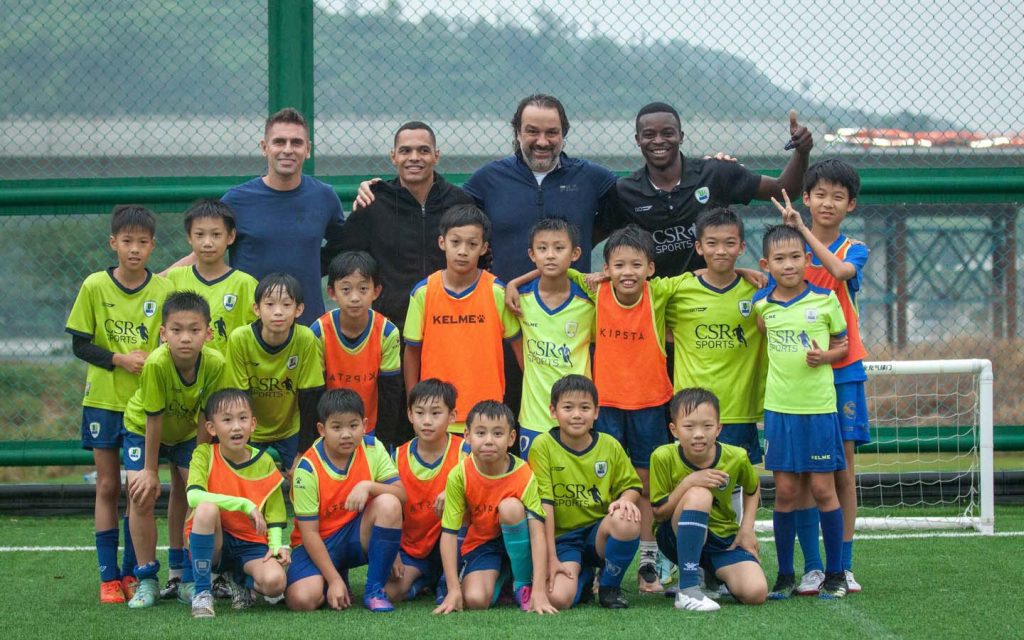
In 2018, Ivo paid a visit to Macao, staying with Gomes and his family. The two began to discuss working together and coaching seemed like a natural next move for Gomes. He was already gaining experience as a coach at the Brazil Macau Football Training Center, when the centre was put up for sale.
The owners asked if Ivo and Gomes wanted to buy it. They did so in 2020, renaming it the Ivo10 Academy. Enrolments quickly grew from the initial 60 to over 300.
Playing football from Brazil to Macao
“In Macao, we play with 10 or 20 percent of our capability, but abroad, it’s 100 percent,” Gomes says. “Many [local] players lack physicality and psychological knowledge.”
Remedying that requires single-minded devotion to the game, of the kind that Gomes himself showed from an early age.
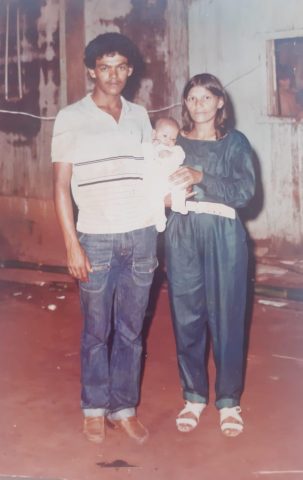
Born in a town called Astorga in Paraná state, Brazil, Gomes was instilled with a love for the sport by his father Luiz, who often kicked a ball around with him and took him to training. Sometimes they crossed into the neighbouring state of São Paulo to watch SE Palmeiras – 10-time league champions and Brazil’s current reigning champions.
Like many kids from a humble background – Luiz was an itinerant glazier, who went where he could find work – Gomes quickly saw the economic advantages of professional football.
“That’s how the dream to become a footballer began,” says Gomes. “It was because I wanted to support my parents.”
He began to attract the attention of scouts at the age of 10, and three years later signed to the junior squad at Santa Catarina – a team based in the state of the same name, south of Paraná. He lived with 14 other young footballers, trained in the mornings and afternoons, and went to school in the evenings.
“That’s when I started to take things seriously,” he says. “When you join a club, you need to prove every week that you are good. If you lose form, someone else will come and take your place. Next thing you know, you’re going back home.”
Gomes played there for three years and then moved to another junior team, Rio Branco Sports Club. After two years there, and at 18 years old, he signed his first professional contract with Paraná Clube.
[See more: Nine questions for Macao’s top centre forward Leong Ka Hang]
This promising trajectory was derailed when he met an agent who promised to help him make the big move to a European club. “I was young, immature and desperate to help my father,” Gomes says. “The agent opened a bag filled with money and I said ‘Yes, let’s do it.’”
The move never materialised, but neither was Gomes able to extricate himself from the contract he had signed with the agent. For a year, he was in limbo – not allowed to sign to any club, and making only occasional money in casual appearances for lowly teams. “I almost gave up playing [professional] football and thought about getting a job,” he says.
Then, in 2010, a friend rang him up about an opportunity to play in Macao. He accepted the offer at once and moved to Macao shortly afterwards to play for Clube Desportivo Monte Carlo. He had seven good years before that injury struck.
How to improve football in Macao
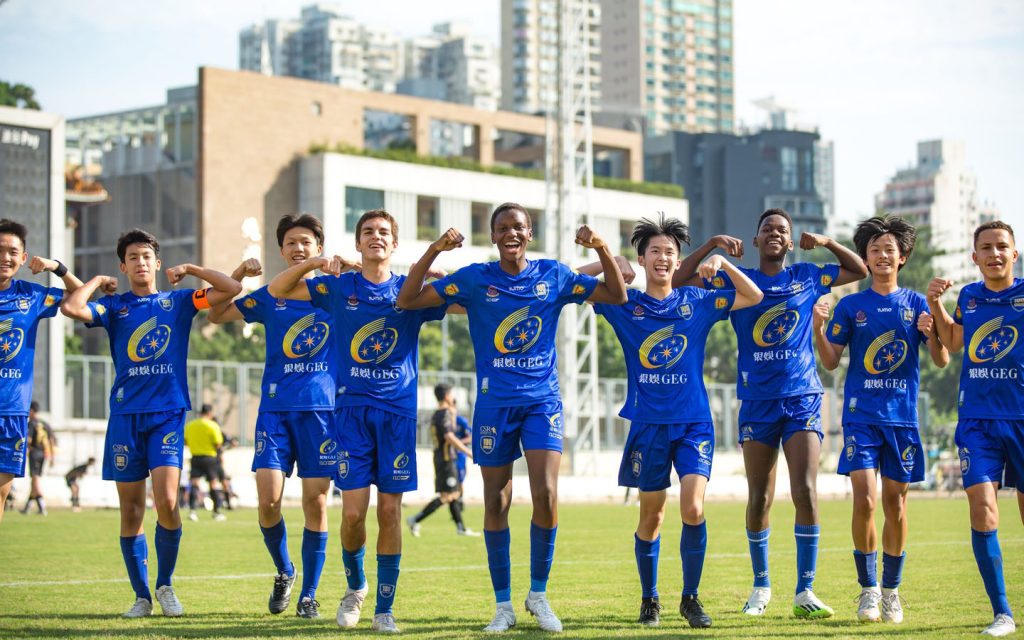
As a coach, it’s natural for Gomes to draw on his Brazilian connections to help his young charges in Macao. So far, Ivo10 Academy has sent two players to Brazil, Jeff Chio and André Peres, who are both 16 years old.
“Jeff stayed there for seven months and will be back there again,” said Gomes, “And André started preseason this January for two months with a professional team.” Like the younger Gomes, the two trained in the morning and afternoon and went to school at night.
Exposure to international levels of the game has overwhelmed young Macao players in the past, some of whom were sent to Portugal for trials but returned home frustrated. Gomes says that many boys have come back saying “I’m not good enough” or “I’m only good for the Macao league.”
The solution, he explains, is patience. There are no overnight fixes. Peres told Gomes that he only started seeing improvements in his game months after his first stint in Brazil, when he was playing against his Brazilian peers daily.
[See more: Will Kylian Mbappe go to Real Madrid? All you need to know]
It’s also clear that Macao needs to invest more in the game. In an interview with Macao News last year, SAR coach Oliveira said the local Football Association needed to do more to encourage young talent to stay and develop their careers in the city. “We have to create good conditions, with pitches and other things for them to stay and play football in Macao,” he said.
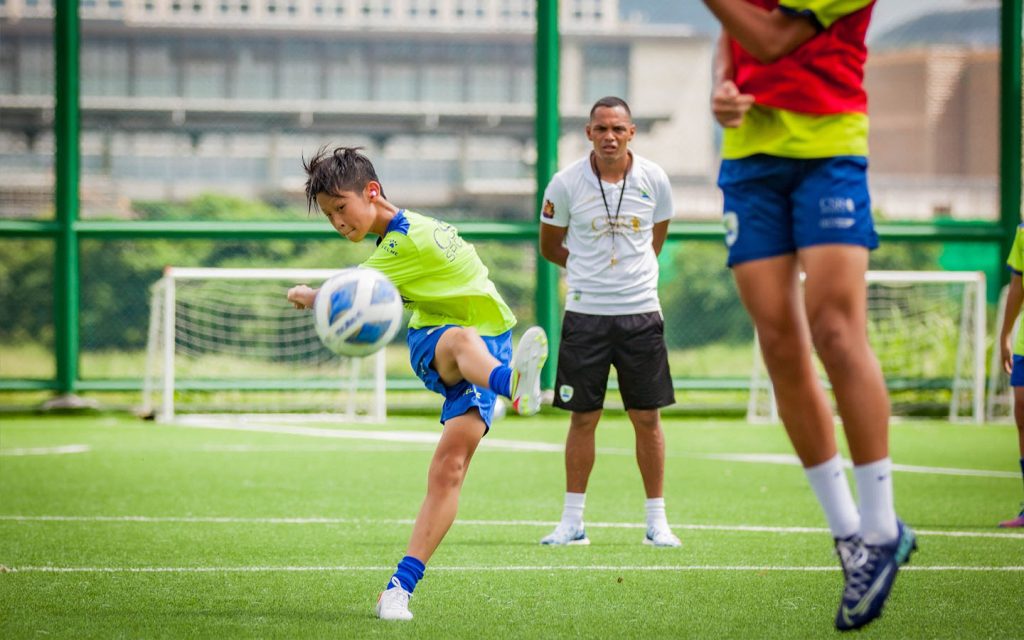
Gomes agrees. Given his own humble beginnings, Gomes feels that young footballers in Macao have things too easy. He has challenged himself day-to-day to take them out of their comfort zones and get them to put in the effort needed to go to the top.
“I know we can help Macao football and so many people say I’m crazy,” he says. “But I can see so many things happening in the future, why can’t others see it too?
